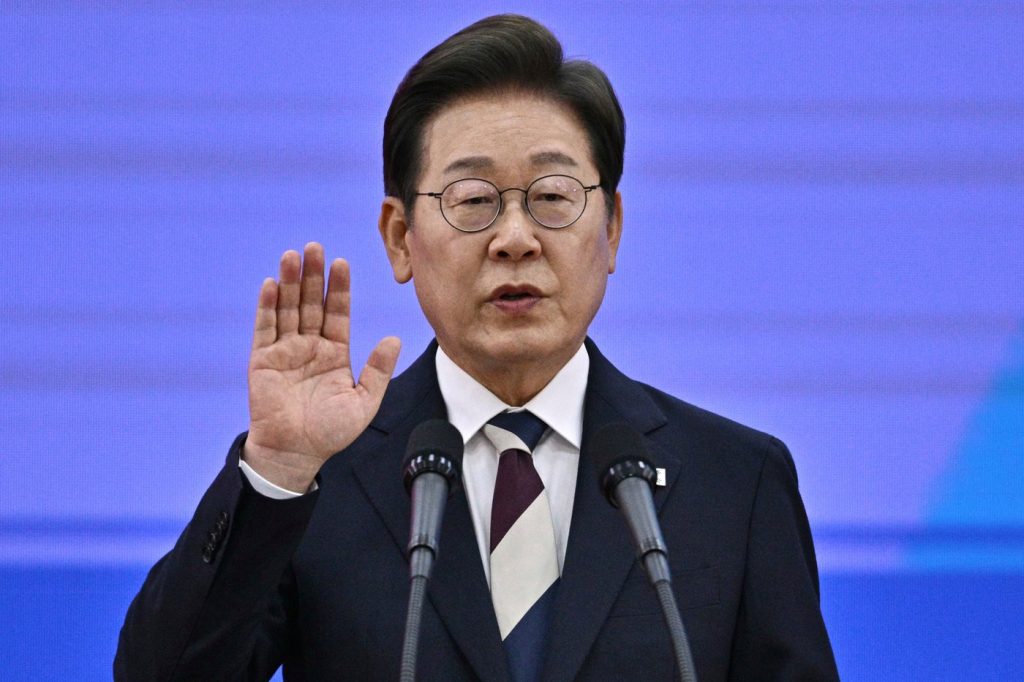SEOUL, South Korea (AP) – South Korea's newly elected President Lee Jae-myung officially began his term on June 4, 2025, following a snap election prompted by the removal of former President Yoon Suk Yeol due to his controversial imposition of martial law. In his inaugural address to the National Assembly, Lee emphasized a commitment to reopening dialogue with North Korea and strengthening trilateral cooperation with the United States and Japan.
Lee, who emerged from a background of poverty to become the leading liberal figure in South Korea, is determined to combat inequality and corruption during his five-year term. He underscored the necessity of tackling threats from North Korea, particularly its nuclear ambitions, through “strong deterrence” backed by the South Korea-U.S. military alliance. However, Lee expressed a willingness to establish communication channels with North Korea in pursuit of lasting peace on the Korean Peninsula.
In his speech, Lee advocated for practical diplomacy that aligns with national interests and sought to transform the challenges posed by shifting global economic and security landscapes into opportunities for South Korea. Despite criticisms suggesting his prior favoritism towards China and North Korea, Lee emphasized the importance of the South Korea-U.S. alliance as the bedrock of his foreign policy, steering clear of controversial statements that could jeopardize relations with Washington and Tokyo.
However, experts remain cautious about any significant shifts in South Korea's foreign policy. Ankit Panda from the Carnegie Endowment for International Peace indicated uncertainty regarding whether the responsibilities of the presidency will compel Lee to govern more centrally, especially concerning national security and the U.S. alliance.
Lee's administration faces formidable external challenges, including U.S. President Donald Trump's tariff policies and North Korea's increasingly collaborative military relationship with Russia. Although Lee did not spotlight trade issues with the U.S. during his inauguration, both the U.S. and Japan congratulated him on his election, expressing their commitment to strengthening trilateral cooperation. Japanese Prime Minister Shigeru Ishiba has expressed a desire to conduct summit talks with Lee as soon as possible, aiming to enhance bilateral connections.
Despite Lee’s overtures toward diplomacy, it's unclear how North Korea will respond, given its avoidance of talks with South Korea since 2019. Recent exchanges suggest a military partnership developing between Russia and North Korea, raising concerns that Russia might bolster North Korea's nuclear program in exchange for support in its ongoing conflict with Ukraine.
Among his immediate priorities, Lee highlighted revitalizing a slowing domestic economy and outlined plans for establishing an emergency task force to combat potential recession threats. He intends to increase government spending to stimulate economic growth. The Bank of Korea recently cut key interest rates and downgraded its economic growth forecast, reflecting the adverse impact of Trump’s tariffs and political instability on domestic demand.
Lee acknowledged the significant political divide in South Korea, a rift exacerbated by the martial law crisis under Yoon’s administration. He urged for unity to heal the nation and indicated a commitment to investigate the events surrounding Yoon’s martial law imposition, labeling it a "rebellion" against the people’s sovereignty. Several of Yoon's associates currently face trial on serious rebellion charges associated with that period.
The newly inaugurated president faces a challenging landscape, including five trials related to corruption and other allegations. Legal experts predict that these trials may be stalled during his presidency due to constitutional protections granted to sitting leaders in South Korea. Lee reiterated his dedication to reducing inequality and addressing the disparities between the capital region and less developed areas of the country, identifying economic polarization as a barrier to growth.











